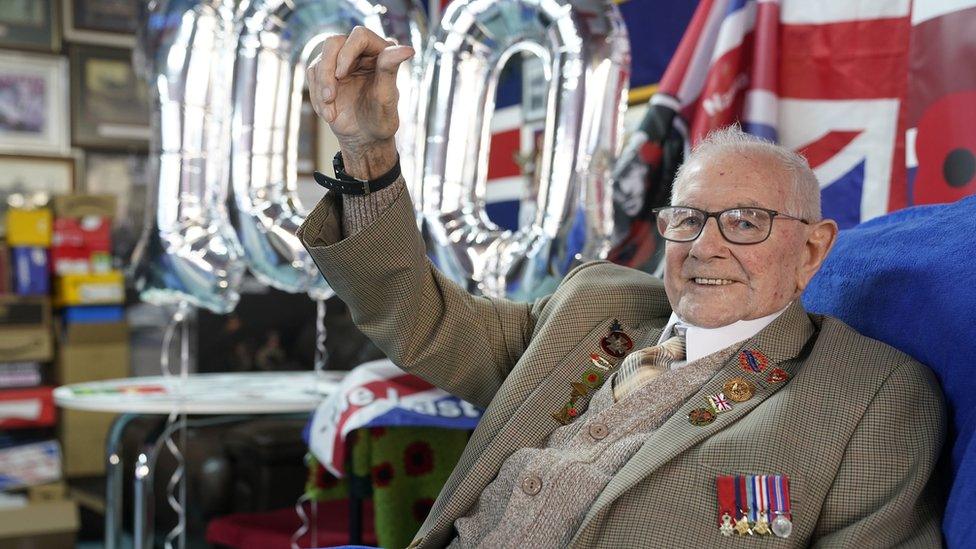WW1 soldiers buried in Belgium a century after their deaths
- Published
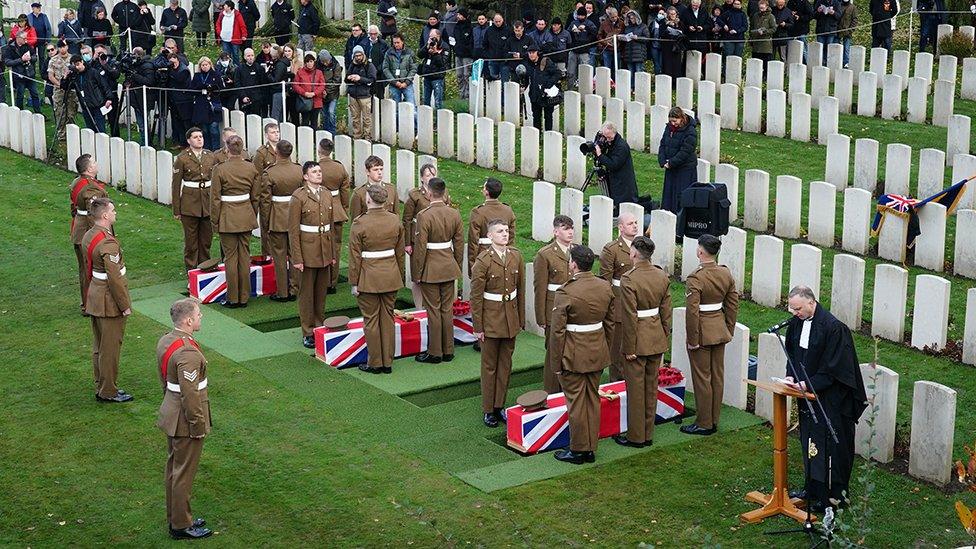
The nine men were killed while fighting in the Battle of Passchendaele in October 1917
Nine British soldiers who died in World War One have been buried more than a century after their deaths.
Their bodies were discovered during engineering works in De Reutel in Belgium in 2018.
Personal belongings found with the men enabled researchers to identify seven of them as soldiers of the 11th Battalion, Northumberland Fusiliers.
They were laid to rest with full military honours in a ceremony at Belgium's Tyne Cot Cemetery.
The service was attended by family members of the seven identified men and the Duke of Kent.
They were buried alongside the graves of thousands of their comrades who fell during heavy fighting at the Battle of Passchendaele in October 1917.
The eighth casualty, closely linked with the seven named servicemen, could not be identified by name but was honoured as an "Unknown Soldier of the Northumberland Fusiliers".
The final serviceman was buried as an "Unknown Soldier of the Great War".
Using the personal belongings found with the men, the Ministry of Defence's Joint Casualty and Compassionate Centre was able to track down surviving family members to complete the identification with DNA testing.
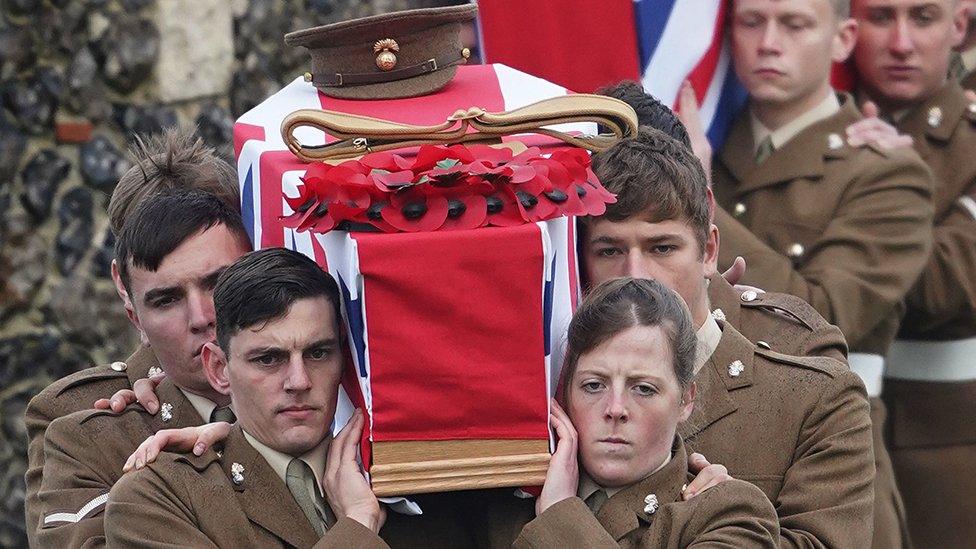
The dead soldiers were from the 11th Battalion, Northumberland Fusiliers.
The seven identified servicemen were:
2nd Lt Leslie Wallace Ablett, born in Manchester and later lived in Streatham, London. Died aged 20.
2nd Lt Edward Douglas Bruty, from Dulwich, London. Died aged 21.
Sgt Thomas Feasby, from Eston, North Yorkshire. Died aged 32.
L/Cpl Stanley Blakeborough, from Pateley Bridge, North Yorkshire. Died aged 21.
Pte Harry Miller, born in Cockerton, Co Durham and later lived in Burton Leonard, North Yorkshire. Died aged 28.
Pte Joseph Patrickson MM, from Gateshead, Tyne and Wear. Awarded the Military Medal for bravery during the fighting in October 1917. Died aged 24.
Pte Arnold Sanderson MM, from Darlington, Co Durham. Awarded the Military Medal for his bravery during the fighting in October 1917 while working as a runner for the officers. Died aged 26.
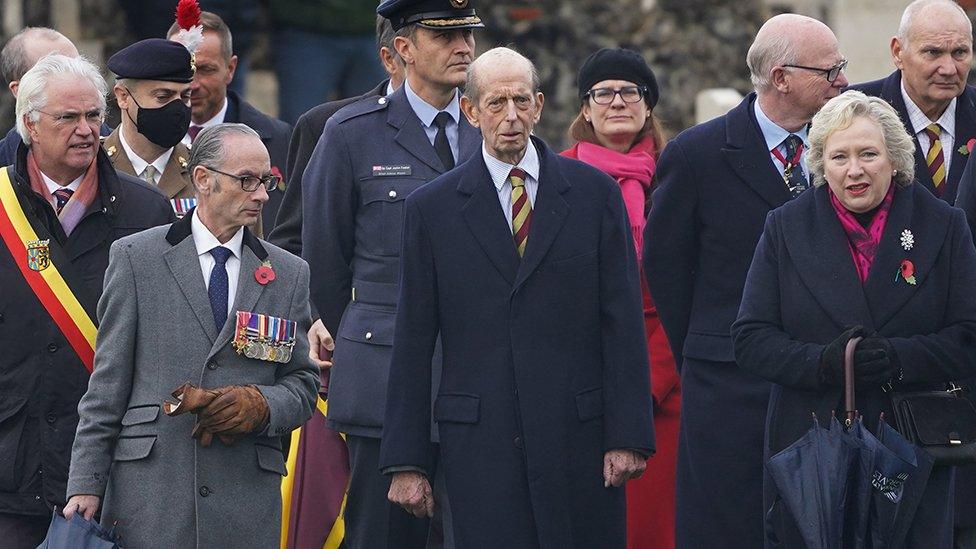
The service was attended by the Duke of Kent and family members of the seven men who were identified
The Battle of Passchendaele was one of the bloodiest of the war.
British and French troops launched an assault on German positions around the Belgian town of Ypres in July 1917. Heavy rain hampered the offensive by turning the battlefield into a sea of mud.
The fighting continued on and off through summer and autumn until the attack was was abandoned in November 1917 with an estimated 325,000 Allied and 260,000 German casualties.

Follow BBC Yorkshire on Facebook, external, Twitter, external and Instagram, external. Send your story ideas to yorkslincs.news@bbc.co.uk, external.
- Published10 November 2021

- Published26 October 2021
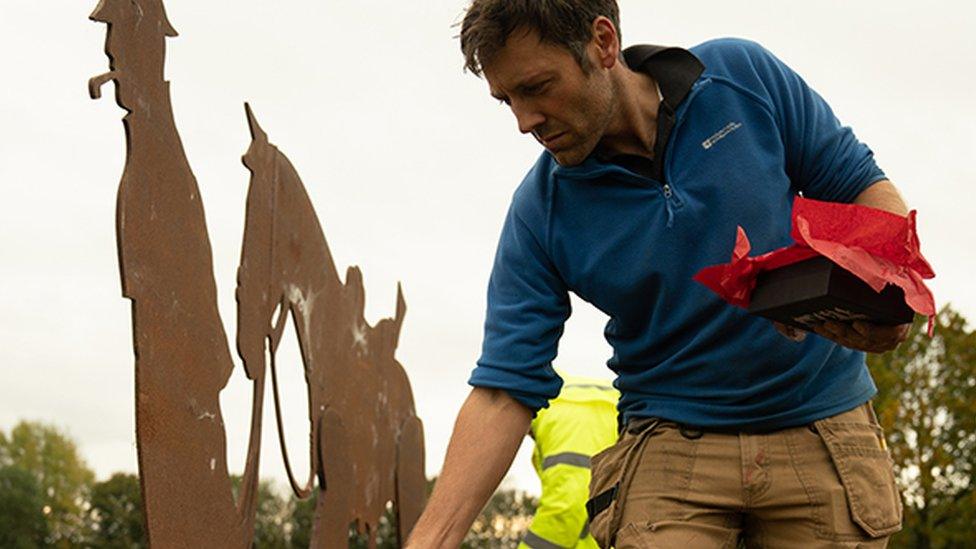
- Published28 October 2021
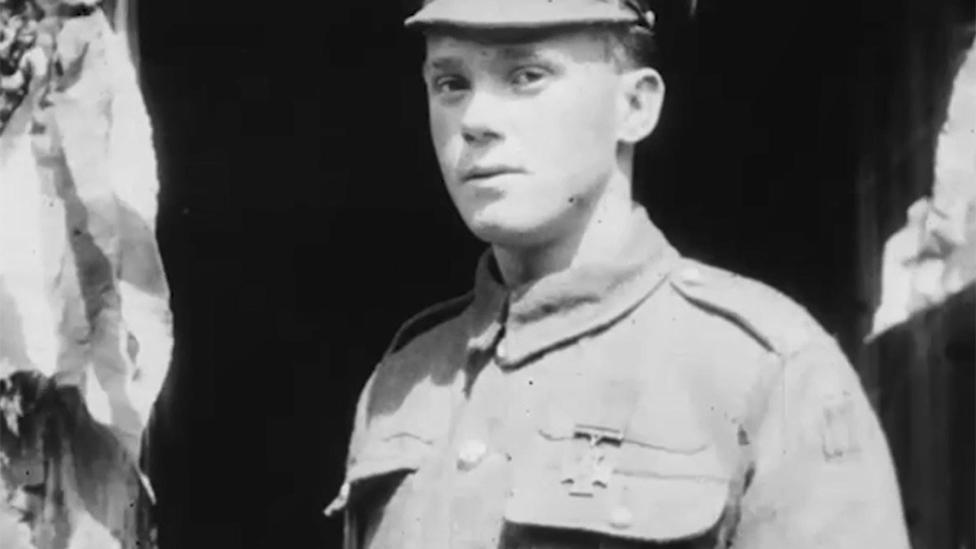
- Published10 February 2021
